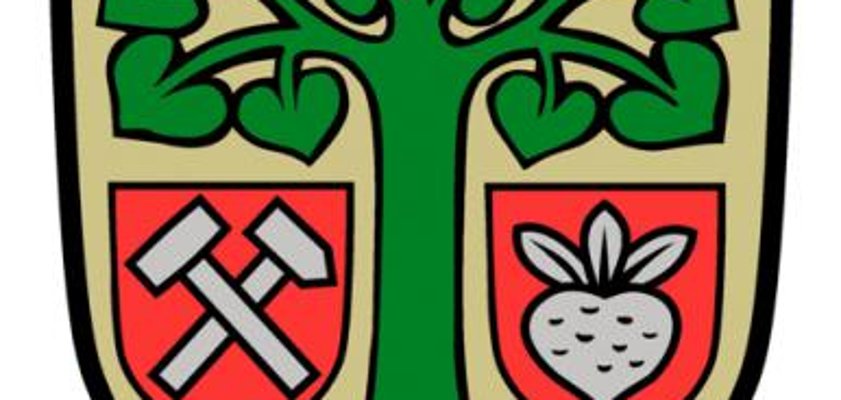Joint press release by the Arolson Archives and the municipality of Rüdersdorf near Berlin
The Arolsen Archives will open the open-air travelling exhibition #StolenMemory on 1 July 2021 at 1 pm in Rüdersdorf near Berlin. The exhibition focuses on the last possessions of concentration camp prisoners and the question of how these so-called effects can still be returned to the victims' families today.
The exhibition can be seen in a hinged overseas container in Hennickendorf, Ringstraße.
"Effects" are personal items that were taken from prisoners by the National Socialists when they arrived at the concentration camps. These were often wedding rings, watches, fountain pens or wallets with photos. #StolenMemory is a campaign by the Arolsen Archives to return these personal items to their relatives. Over 500 families have already been found since the campaign was launched in 2016. The exhibition shows pictures of such "effects" and tells of the fate of ten victims of Nazi persecution.
The aim of the exhibition: to raise awareness and support
Under the heading "Found", the exhibition focuses on personal items that have already been returned. It tells the story of how the former owners were persecuted and how they were returned to their families today. Using a smartphone, visitors can call up video portraits via an app, in which the relatives themselves have their say.
Under the heading "Wanted", "effects" are shown that are still waiting to be returned. An important message is therefore also that anyone can support the Arolsen Archives in returning the effects and go in search of traces of the persecuted and their families themselves. After all, the archive still holds stolen memorabilia from almost 2,500 people from all over Europe.
The emotional value of the effects
"Many victims of the National Socialists left no material traces for their families because the National Socialists took everything from them," says Floriane Azoulay, Director of the Arolsen Archives. The return of the effects is therefore often very unexpected for the relatives: "Some of them know nothing or very little about this part of the life story of their grandparents, parents, uncles and aunts". This makes it all the more important that the objects are returned to the families.
Exhibition continues in Rüdersdorf near Berlin
"I am honoured to be able to host the exhibition in our community. It is often the small, personal things that help us to remember. The Nazi regime of terror not only took away people's dignity, but also tried to destroy their memories. This is precisely where the work of the Arolsen Archives comes in, giving relatives back the personal belongings of their relatives," explains Mayor Sabine Löser. "I hope that many people will visit the exhibition over the next 14 days, pause for thought and show their support. I am also delighted that the mobile exhibition container comes from the Rüdersdorf district of Herzfelde and was developed and built by the local container manufacturer. It seems to me to be an innovative and sustainable concept to bring exhibitions to the people and not the other way round."
Exhibition and website
The #StolenMemory exhibition has been travelling through Germany since August 2020. The project was realised by the Arolsen Archives thanks to the "Culture in Rural Areas" funding measure (Federal Government Commissioner for Culture and the Media). Due to the great demand, a second container has been available since 2021, which is now also travelling to larger cities.
The website stolenmemory.org offers interesting insights to accompany the exhibition: short, animated films with supplementary web stories tell of individual fates. These materials were specially developed for young people and were honoured with the Grimme Online Award in the "Knowledge and Education" category in June 2021. Extensive educational material is also available for free download on the website, which can be used by schools and educational institutions at all stations of the travelling exhibition.
Where: 15378 Rüdersdorf bei Berlin - OT Hennickendorf, Ringstraße (Festplatz)
When: 1-14 July 2021
Opening hours: daily, 10 a.m. - 8 p.m.
Link to the #StolenMemory website: https://stolenmemory.org/
Press photos here.
Press contact Arolsen Archives:
Anke Münster
Anke.Muenster(at)arolsen-archives.org
05 691 629-182
Press contact for the municipality of Rüdersdorf near Berlin:
Alexander Reetz
alexander.reetz(at)ruedersdorf.de
033638 95-302
About the Arolsen Archives
The Arolsen Archives are an international centre on Nazi persecution with the world's most comprehensive archive on the victims and survivors of National Socialism. The collection with information on around 17.5 million people is part of the UNESCO World Documentary Heritage. Since 2016, the institution has been publishing online a large number of original documents on the various victim groups of the Nazi regime from concentration camps and is an important source of knowledge for today's society. There are now more than 27 million documents - deportation lists, imprisonment documents, registrations of missing persons and many more.
Twitter: https://twitter.com/ArolsenArchives
Instagram: https://www.instagram.com/arolsenarchives/
Facebook: https://www.facebook.com/ArolsenArchives/

